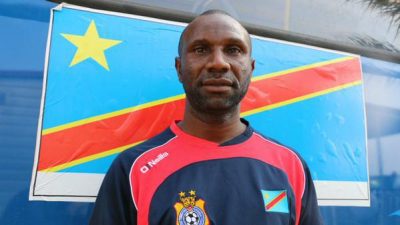By
Sylvain Muyali
For the national coach of DR Congo, Florent Ibenge, to be present in the semi finals of football’s Africa Cup of Nations is an exception. African born coaches are a rare commodity in the prestigious annual competition and more and more are now becoming sorry for it.
There were only three African born coaches at the start of the tournament and only one has managed to progress beyond the first round. Local coaches are a rare commodity in the 2015 Africa Cup of Nations, a phenomenon that reflects the lack of recognition of African technicians on their own continent.
The coach of DR Congo Florent Ibenge is the sole survivor of this small contingent, the lowest in the history of the tournament, the South African Ephraim Mashaba and Zambian Honour Janza having already packed their bags after two weeks following their respective nations’ exits from the tournament.
These three however are exceptions, the predominance of foreign coaches in Africa a trend that has continued to increase over the years.
During this year’s Africa Cup of Nations, six French, two Portuguese, two Belgians, a German, an Argentine and an Israeli monopolised the managerial / coaching roles, continuing the tradition of the famous “white witch”, inseparable from an African Cup.
However, there are voices to denounce this stranglehold and stress the responsibility of the federations, the most virulent being that of Nigerian Stephen Keshi, winner of the 2013 Africa Cup of Nations with the Super Eagles of Nigeria.
“I have nothing against European federations and coaches, but African countries should be patient with their own technicians,” he told the press. “They think they are doing us a favour by making us work, but it is a way to kill football in Africa.”
“There are a lot of returning players in Africa at the end of their careers who would lead their countries but they do not have the opportunity. “Keshi had already been appointed the spokesman of his colleagues at the 2013 Africa Cup of Nations, pointing to discrimination and racism as reasons for the lack of African origin technicians both at home and in Europe.
“I have nothing against white coaches but I can never have success in Europe because they believe that I am not qualified enough to do it,” he had said at the time. The statistics are clear, yet clearly argue for the better exposure of locally bred coaches.
Over the last ten years of the Africa Cup of Nations, the competition has been won six times by an African coach (Egyptians Mahmoud El-Gohary and Hassan Shehata in 1998 and in 2006, 2008 and 2010, Clive Barker with South Africa in 1996 and Keshi with Nigeria in 2013).
“We should have coaches from the team’s country. It would be great to introduce this rule.” “The future is to have more African bred leaders,” noted French coach Claude Le Roy, who is competing in his eighth Africa Cup of Nations (a record), head currently of the Congo national side.
“But it’s a philosophical problem. When we pass degrees in France, it lasts ten years, physiology, pedagogy, management, foreign languages, it’s a lot of work and time to have the highest degree.” Le Roy believes however that “we must not oppose the coach’s work” and refers to himself as ‘the ball in the court of federations’.
“Me, no one can interfere in my work, I would be furious,” he added. “The final decision is always mine. But African coaches feel a lot of pressure, the president of the federation is on the ground and tells them to make changes. They must be given full responsibility.”
The DR Congo national team, under the guidance of coach Florent Ibenge, play Ivory Coast in the semi finals of this year’s Africa Cup of Nations on Wednesday 4th February, one victory away from appearing in the legendary tournament’s final.



No Comments Yet!
You can be first to comment this post!